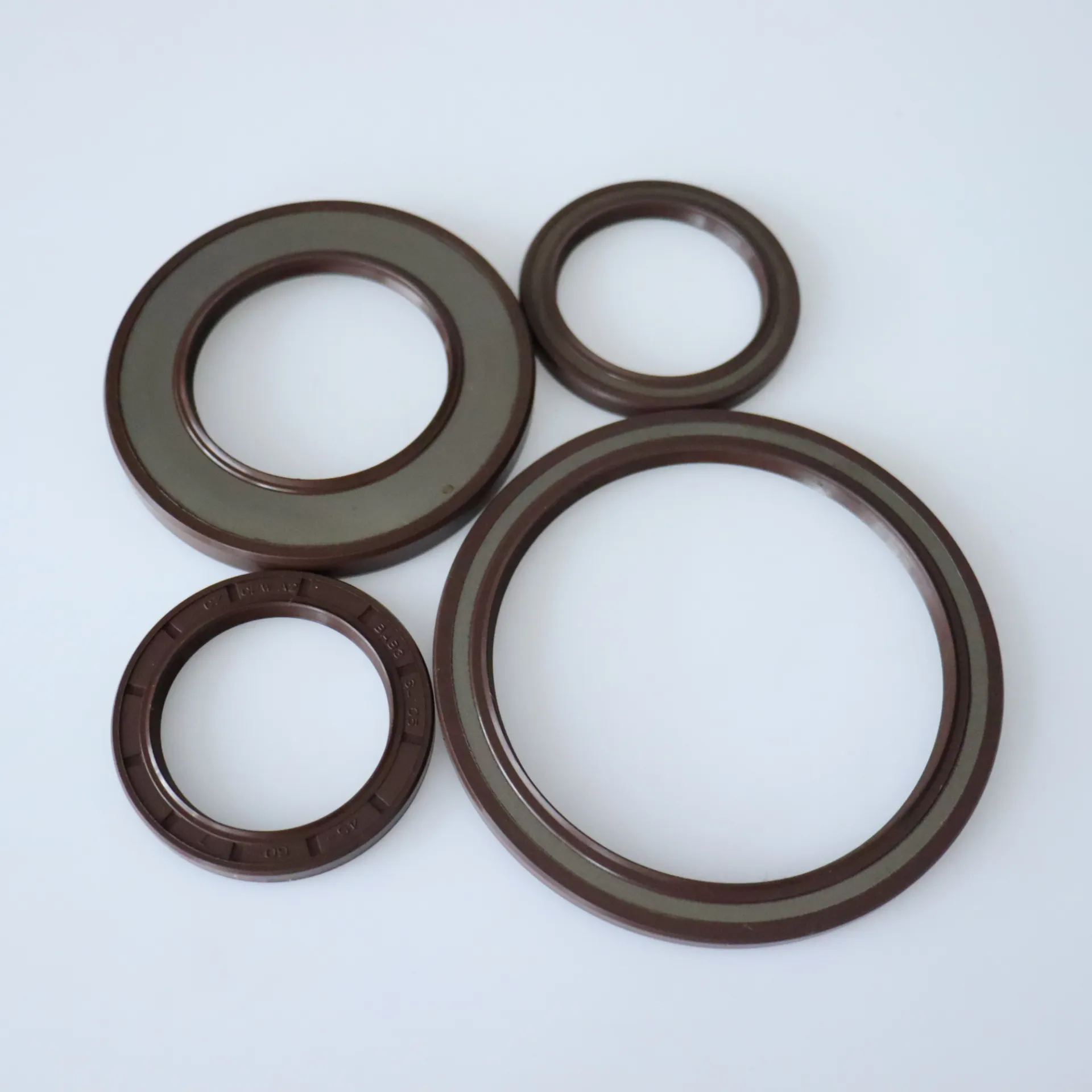நவ் . 30, 2024 03:02 Back to list
Understanding the Purpose and Functionality of Oil Seals in Machinery
The Function of Oil Seals
Oil seals, also known as grease seals or shaft seals, are critical components in various mechanical systems, ensuring longevity and reliability. Their primary function is to retain lubricants within machinery while simultaneously preventing the ingress of contaminants such as dirt, dust, and moisture. This dual action plays a crucial role in the smooth operation and durability of engines, gearboxes, and other rotating equipment.
Structure and Design
Oil seals are typically made from elastomeric materials like rubber or thermoplastic polymers. The design of an oil seal usually includes a sealing lip, a rigid outer casing, and sometimes a spring to enhance the sealing effectiveness. The sealing lip is the part that contacts the shaft, creating a barrier against leakage. The accurate design and manufacturing of oil seals are essential to ensure they can withstand various pressures and temperatures encountered in mechanical environments.
Retaining Lubricants
One of the most vital functions of oil seals is to retain lubricant within a system. lubricants, such as oils and greases, are necessary for reducing friction between moving parts. Without adequate lubrication, components can wear down quickly, leading to increased maintenance costs and potential system failures. Oil seals prevent the escape of these lubricants into the surrounding environment, ensuring that sufficient lubrication remains available to protect and enhance the performance of the machinery.
Preventing Contamination
In addition to retaining lubricants, oil seals are instrumental in preventing contamination. Machines often operate in environments where dust, dirt, and other particles can infiltrate moving components. Contaminants can form abrasive particles that damage sensitive surfaces, potentially leading to premature wear or catastrophic failure. Oil seals create a barrier to keep these harmful elements out, ensuring that the internal components remain clean and operational.
what is the function of oil seal

Variety of Applications
Oil seals are used in a wide range of applications across various industries. In automobiles, they are found in engines, transmissions, and differentials, helping maintain lubrication and prevent leaks. In industrial machinery, they serve similar roles in hydraulic systems, pumps, and gearboxes. The versatility of oil seals makes them indispensable in applications ranging from household appliances to heavy-duty industrial equipment.
Material Selection
Selecting the right material for oil seals is crucial because different applications require different properties. For instance, in high-temperature environments, seals made from specialized elastomers or fluoropolymers are used to ensure they do not degrade over time. Similarly, in applications involving aggressive chemicals, seals must be made from resistant materials to prevent deterioration. The ability to customize oil seals based on the specific needs of an application is a significant advantage.
Common Issues and Maintenance
While oil seals are designed to be durable, they can develop issues over time. Common problems include wear and tear from friction, deformation from exposure to chemicals, and hardening due to aging. Regular inspection and maintenance of oil seals are essential to detect signs of failure early, preventing leaks and possible damage to the machinery they protect. Replacing worn oil seals promptly can save substantial costs related to repairs and downtime.
Conclusion
In summary, oil seals serve vital functions in various mechanical systems, primarily retaining lubricants and preventing external contaminants from entering. Their structure and design allow them to effectively perform these functions across a broad spectrum of applications. Material selection plays a significant role in their effectiveness, ensuring they can withstand the specific conditions of their operating environments. By understanding the importance of oil seals, manufacturers and operators can prioritize their maintenance, leading to increased efficiency and longevity of machinery. The small but mighty oil seal is a testament to how such a simple component can have a profound impact on the performance and reliability of mechanical systems.
-
The Trans-formative Journey of Wheel Hub Oil Seals
NewsJun.06,2025
-
Graphene-Enhanced Oil Seals: Revolutionizing High-Pressure Oil Sealing
NewsJun.06,2025
-
Future of Hydraulic Sealing: Advanced Intelligent TCN Oil Seals
NewsJun.06,2025
-
Don’t Let a Broken TCV Oil Seal Ruin Your Day
NewsJun.06,2025
-
Bio-Inspired Dust Seals for Better Sealing Performance
NewsJun.06,2025
-
Biodegradable and Sustainable Hydraulic Seal Materials
NewsJun.06,2025
-
Top Oil Seal Solutions for Your Industrial Needs
NewsMay.22,2025
Products categories
















